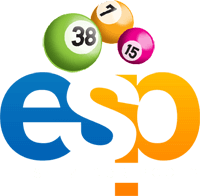Law and Regulation
The history of El Salvador has been a struggle against many conquistadors, empires, dictatorships and world powers. After gaining independence, several Spanish Creoles took control of the government and economy. El Salvador, with the other countries of Central America, declared its independence from Spain on Sept. 15, 1821.
Independence from Spain (1821) was sought bycriollos who were inspired by the American and French revolutions. They gained support from the Indians and landless peasants by promising to end the abuses committed by landowners. After the revolution, Indians and peasants remained impoverished and largely without land or legal rights. Rural houses are typically made of adobe, with a large front porch (corredor) where people spend most of their time when at home. The insides of houses are used mainly for sleeping and storage, and families of seven or eight people may live in one or two small rooms. Many of the poorest families have houses made of discarded materials such as cardboard and sheet metal. While the main casinos are only two in number, El Salvador does have various small casinos and gambling joints in different towns and cities. These are mainly aimed at the locals who frequent them. El Salvador has the latest machinery in gambling as the import of gambling machines is not prohibited. However the import of items in the casino category is subject to authorization by the Ministry of finance and local municipalities. These include the import of machinery like roulette wheels, gambling tables and other items needed for gambling. Pari-mutuel facilities like horse and dog racing can also be found. The legal status of gambling and casinos in El Salvador is quite controversial, and has been for many years. The first law regulating gambling in this Central American country was created back in 1882. This law imposed a ban on all forms of gambling. This law was reinforced in 2002, and all gambling houses were ordered to shut down. That there was even need for such a law makes it obvious that the ban on gambling was blatantly disregarded. Gambling is a popular pastime in El Salvador, and locals aren’t wont to give up their entertainment because of some pesky laws. As a result of the Salvadorans’ display of public disobedience, casinos are currently tolerated. In accordance with the 2002 gambling regulation, they are only allowed to offer lottery products. However, table games and slot machines are also freely available. Another source of confusion regarding gambling laws in El Salvador is the 1983 Municipal Code. This law gave municipalities to decide on such matters on their own authority. Many still claim that there are no laws explicitly directing them to order the closure of casinos. The Salvadoran government seems to have practically given up on trying to enforce a ban on gambling. Online gambling on the other hand has never been regulated in the country. While the government does not issue licenses to online gambling operators, there are also no laws against this form of entertainment. As a result, locals are free to play on international online gambling sites.
